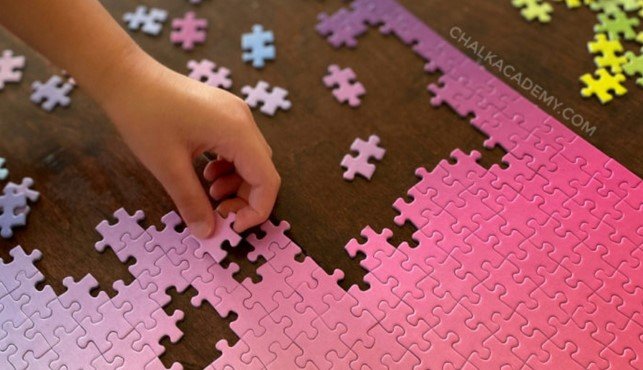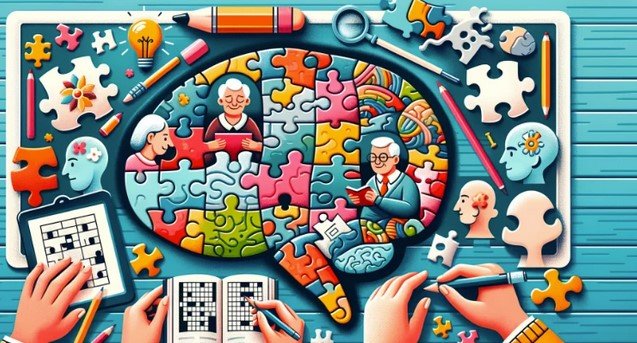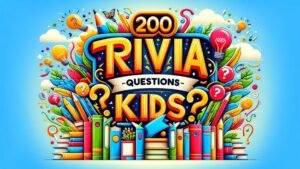Puzzles are not only fun but also excellent tools for enhancing cognitive function, improving problem-solving skills, and promoting mental well-being. Regardless of age, puzzles offer something for everyone, from young children developing basic skills to adults looking to sharpen their minds. In this post, we will explore the top puzzle types suitable for all ages, highlighting their benefits and why they’re perfect for anyone, whether you’re a beginner or a seasoned puzzle solver.

1. Jigsaw Puzzles
Jigsaw puzzles are one of the most popular puzzle types for all age groups. They come in various difficulty levels, from simple 24-piece puzzles for young children to intricate 1,000-piece puzzles for adults. The objective is simple—fit the pieces together to form a complete image.
Benefits:
- Cognitive development: Jigsaw puzzles help improve spatial awareness and cognitive function.
- Focus and patience: They require attention to detail and the ability to work steadily toward a goal.
- Relaxation: Completing a jigsaw puzzle is a great way to reduce stress and unwind.
Jigsaw puzzles can be enjoyed by young kids, teens, and adults alike, making them perfect for family bonding or personal leisure.
2. Crossword Puzzles
Crossword puzzles are a classic puzzle type that challenges your vocabulary and knowledge. Players must fill in a grid with words based on clues, which vary in difficulty. Crosswords are commonly found in newspapers, puzzle books, and mobile apps, making them easily accessible for everyone.
Benefits:
- Improves vocabulary: Regular crossword solving increases word knowledge and enhances language skills.
- Memory boost: They challenge memory recall and help with information retention.
- Critical thinking: Crossword puzzles require logical thinking and reasoning to match clues with correct answers.
Crosswords are perfect for both kids who are starting to learn new words and adults looking to sharpen their minds.
3. Sudoku
Sudoku is a number-based puzzle that has become incredibly popular worldwide. The puzzle consists of a 9×9 grid that needs to be filled with numbers, with the rule that each row, column, and 3×3 subgrid must contain the numbers 1 to 9 without repetition. Sudoku comes in varying levels of difficulty, from beginner to expert.
Benefits:
- Enhances logical reasoning: Sudoku promotes pattern recognition and logical thinking.
- Improves concentration: Solving Sudoku puzzles helps improve focus and attention to detail.
- Boosts problem-solving skills: This puzzle challenges you to approach problems step by step, improving your analytical thinking.
Sudoku is ideal for teens and adults, but younger kids can start with simpler variations to practice number recognition and basic logic.
4. Logic Puzzles
Logic puzzles require players to use deductive reasoning to solve problems. These can range from simple riddles to complex brainteasers. Common examples include puzzles where you need to figure out who owns a specific pet or where a certain person sits based on a series of clues.
Benefits:
- Sharpens critical thinking: Logic puzzles promote critical thinking and reasoning skills.
- Improves memory and attention: They often require you to remember and track multiple clues at once.
- Enhances problem-solving: These puzzles help develop systematic thinking and improve the ability to solve problems.
Logic puzzles are suitable for older children and adults who enjoy a challenge and want to boost their reasoning abilities.
5. Tangrams
Tangrams are a type of dissection puzzle that originated in China. The goal is to rearrange seven geometric pieces (called tans) to form a specific shape, usually an animal, person, or object. Tangrams are great for visual learners and come in various difficulty levels.
Benefits:
- Promotes spatial awareness: Tangrams improve visual-spatial reasoning and the ability to recognize patterns.
- Boosts creativity: Solving tangram puzzles encourages creative thinking and imaginative solutions.
- Enhances fine motor skills: Rearranging the pieces requires careful hand-eye coordination.
Tangrams are great for young children, especially when they start learning shapes, but they can also challenge older children and adults who want to improve their spatial reasoning.
Conclusion
Puzzles are an excellent way to engage the mind and improve problem-solving skills, and there’s a type of puzzle for everyone. From jigsaw puzzles that improve spatial reasoning to word searches that boost vocabulary, each puzzle type offers its own unique benefits. Regardless of age, incorporating puzzles into your routine can enhance cognitive abilities, boost creativity, and provide hours of entertainment. So, whether you’re a child looking to learn new skills or an adult trying to keep your mind sharp, there’s a puzzle out there for you to enjoy.



